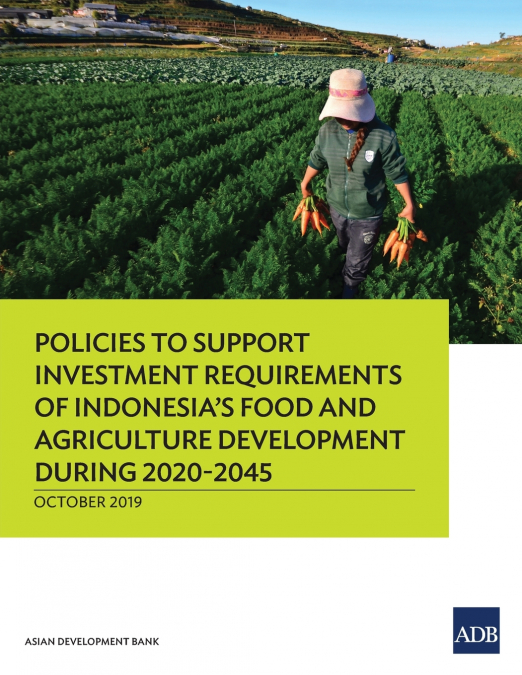
 Librería Desdémona
Librería Desdémona
 Librería Samer Atenea
Librería Samer Atenea
 Librería Aciertas (Toledo)
Librería Aciertas (Toledo)
 Kálamo Books
Kálamo Books
 Librería Perelló (Valencia)
Librería Perelló (Valencia)
 Librería Elías (Asturias)
Librería Elías (Asturias)
 Donde los libros
Donde los libros
 Librería Kolima (Madrid)
Librería Kolima (Madrid)
 Librería Proteo (Málaga)
Librería Proteo (Málaga)
This report provides analysis and policy recommendations on the investments needed in Indonesia’s agriculture sector to boost food security and enhance economic development.Agriculture continues to play a vital role in Indonesia’s economic development. The sector contributes significantly to the country’s gross domestic product, provides jobs for nearly 30% of the workforce, and has the essential function of providing food security. The report assesses the country’s agricultural investments and policies, and evaluates the economy-wide impacts of alternative agricultural scenarios. The results show that Indonesia can virtually end hunger by 2030 with an appropriate mix of investments in agricultural research and development, irrigation expansion and water use efficiency, and rural infrastructure. The report makes key policy recommendations to support government efforts to mobilize these investments, which will also contribute to the country’s economic growth.